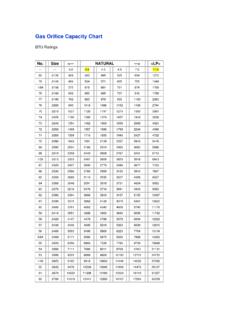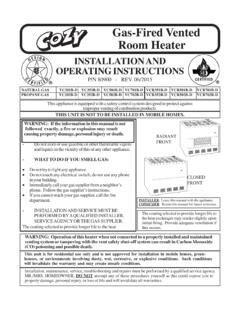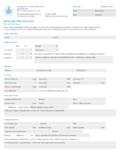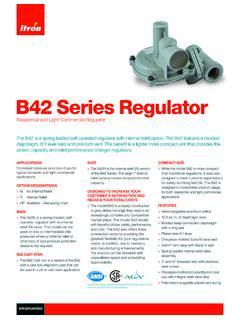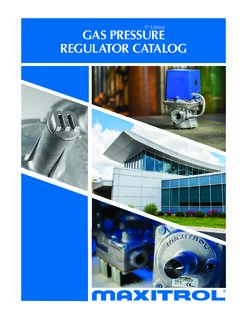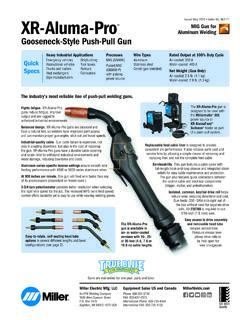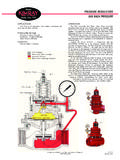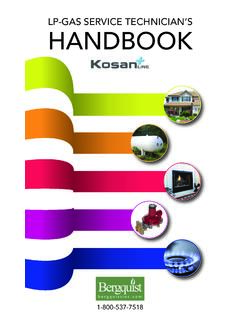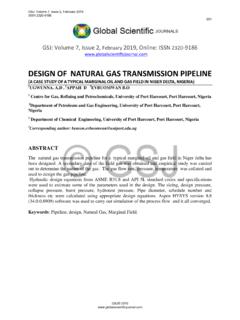Transcription of PREVENTIVE MAINTENANCE TECHNIQUES FOR HVAC/R …
1 PREVENTIVE MAINTENANCE TECHNIQUES FOR HVAC/R SERVICE TECHNICIANS A Desktop Reference and Training Guide for PREVENTIVE MAINTENANCE Certification Written by: Robert P. Scaringe Tenth Edition January 2016 Copyright 2016 ALL RIGHTS RESERVED Mainstream Engineering Corporation, Rockledge, Florida Except as permitted by Sections 107 and 108 of the 1976 United States Copyright Act, no part of this publication may be reproduced or distributed in any form, or by any means, or stored in any database or retrieval system, without the prior written permission of the copyright owner. Information contained in this work has been obtained by Mainstream Engineering Corporation from sources believed to be reliable. However, neither Mainstream Engineering Corporation nor its author guarantees the accuracy or completeness of any information published herein, and neither Mainstream Engineering Corporation nor its author shall be responsible for any errors, omissions, or damages arising from the use of this information.
2 This work is published with the understanding that Mainstream Engineering Corporation and its author are supplying information but are not attempting to render engineering or other professional or technical services. If such services are required, the assistance of an appropriate professional should be sought. Table of Contents Table of Contents Figures Tables Preface PM Tech Examination Information Levels of PM Tech Certification Apprentice PM Tech Journeyman PM Tech Master PM Tech DEFINITIONS Section 1: The Need for Certified PM Technicians Section 2: Basic Vapor-Compression Refrigeration Principles Introduction The Basic Vapor Compression Cycle Leak Testing TECHNIQUES Removing Moisture Evacuation Procedures Deep Vacuum Replacement Refrigerants Retrofitting Lubricants Lubricant Change-Over Refrigerant Contamination Flammability Hazards SDS Section 3: Sources of Potential Failure Section 4: Refrigerant Circuit Subsystem MAINTENANCE Check Superheat and System Charge Acid in Systems Using QwikCheck to Check for Acid Filter-Drier Types and Locations Instructions for Using QwikShot Acid Treatment Moisture in a System Check for Corrosion Section 5.
3 Air Side Subsystems MAINTENANCE Check the Airflow Paths, Check for Mold and Clean the Coils Outdoors Indoors Instructions for Using QwikClean Foaming Coil Cleaner on Evaporator Coils Instructions for Using QwikClean Foaming Coil Cleaner on Condenser Coils Instructions for Using PuraClean Filter Spray Clean and Treat the Condensate Flow Path Check the Indoor Fan Coil Unit for Air Leaks Check for Free Spinning Operation of the Blower and Fan Motors Section 6: Electrical Subsystem MAINTENANCE Check that the Compressor Leads are Securely Fastened Instructions for Using QwikLug Check the Contactor Check that the Contactor Points are Clean Activate the Contactor and Listen for Contactor Hum and/or Vibration Check for Proper Starting of the Compressor Check the Run Capacitor Under Load Check the Start Capacitor Section 7: Compressor Burnout Procedures Figures Figure 1. Certified PM Tech patch Figure 2. Standard Compressed Gas Labels Figure 3. QwikCheck before acid test Figure 4.
4 QwikCheck after acid test if acid is present Figure 5. QwikShot being poured into QwikInjector for use Figure 6. QwikInjector connected inline for use Figure 7. Coils Before cleaning with QwikClean Foaming Coil Cleaner Figure 8. Coils After cleaning with QwikClean Foaming Coil Cleaner Figure 9. PuraClean Example of Treated vs. Untreated Filter Figure 10. Worn out capacitor Figure 11. QwikLug Figure 12. QwikSEER+ Wattsaver Figure 13. QwikCheck is yellow before acid test. Figure 14. QwikCheck is orange to red after acid test if acid is present. Figure 15. Red QwikCheck indicates acid is present. Figure 16. Yellow QwikCheck indicates no acid is present. Figure 17. Adding QwikShot to QwikInjector for use Figure 18. QwikShot injected into system using QwikInjector Figure 19. QwikClean Foaming Coil Cleaner Figure 20. QwikLug instructions Figure 21. Connection Terminals on X-13 Type Motors Figure 22. Connection Terminals on ECM Motors Figure 23. Diagram illustrating method of checking a capacitor Figure 24.
5 Capacitor identifying mark Tables Table 1. Pressure/Temperature Saturation Relationship for Water Table 2. Refrigerant Blends Containing at Least One Flammable Component Table 3. Saturation Pressure-Temperature Chart for Common Refrigerants Preface Table of Contents The information in this course is intended for educational purposes only. Procedures described are for use only by qualified air conditioning and refrigeration service technicians who are already well versed in HVAC/R service TECHNIQUES and who have a valid EPA Section 608 Certification. This training course is not a substitute for the required EPA Section 608 certification or for any equipment Manufacturer's Operator Manual. Take safety precautions when using all HVAC equipment. Improper use of HVAC equipment can cause explosion and serious personal injury. Always use extreme caution when working with refrigerants; hoses may contain liquid refrigerant under pressure. Use only approved refillable storage cylinders.
6 Do not overfill any storage cylinder beyond its rated capacity. Always wear safety glasses. Protect the skin from flash freezing. Never turn on any equipment if you do not understand its operation. Where procedures described in this manual differ from those of a specific equipment manufacturer, the equipment manufacturer's instructions should be followed. Mainstream Engineering Corporation assumes no liability for the use of information presented in this publication. This information is presented for educational purposes only. Manufacturer's Operator Manuals must be consulted for the proper operation of any piece of equipment. The content of this course is limited to information and service practices needed to effectively extend the operating life of vapor-compression equipment, typically utilized in the HVAC/R industry. This manual is not intended to teach fundamental air conditioning or refrigeration system TECHNIQUES or safety practices. Likewise, this manual is not intended to teach safe refrigerant recovery or refrigerant handling TECHNIQUES .
7 This manual assumes the technician is well versed with these issues and possesses an EPA-Approved Section 608 certification. PM Tech Examination Information Table of Contents The PM Tech certification exams consist of 25 questions. Technicians can take the PM Tech certification exam as many times as necessary (passing grade is 21 correct out of the 25 questions or 84%). The exams are open-book and technicians have a maximum of three hours to complete each exam. If you retake the exam, you will automatically be given a different set of questions from the test bank. Three types of certification are available: Apprentice, Journeyman, and Master PM Tech. Prior to obtaining any of Mainstream's PM Tech certifications, the technician must have an EPA 608 certification from an EPA approved certifying agency, such as Mainstream. Only 608 CERTIFIED TECHNICIANS can obtain a PM Tech certification. The PM tech certification exam is available on-line at You can TAKE THE EXAM ONLINE WHEN YOU ARE READY.
8 The exam consists of 25 questions, which are related to PREVENTIVE MAINTENANCE and proper use of QwikProducts to service, repair and maintain air conditioning, refrigeration, and heat pump systems. Mainstream reserves the right to revoke the PM Tech certification given to any individual, at any time, and without prior notice, for excessive customer complaints, unethical or illegal service practices, failure to meet Mainstream's professional requirements, or any other reason deemed justifiable by Mainstream employees. Mainstream is under no legal obligation to disclose the reason for the termination. Levels of PM Tech Certification Table of Contents Apprentice PM Tech Table of Contents This certification requires EPA Section 608 certification from Mainstream or any other EPA approved testing organization, and successful completion of the PM Tech exam with a score of 84% or better. Documentation to prove EPA certification by any organization other than Mainstream must be received and verified.
9 For Mainstream certified 608 Technicians, we will automatically verify your EPA certification. Journeyman PM Tech Table of Contents This certification includes all the requirements of the Apprentice PM Tech (above) plus at least 5 years verifiable experience in the HVAC/R trades. Documentation to substantiate this experience is required. Master PM Tech Table of Contents This certification includes all the requirements of the Apprentice PM Tech plus at least 10 years verifiable experience in the HVAC/R trades. Documentation to substantiate this experience is required. Figure 1. Certified PM Tech patch DEFINITIONS Table of Contents Azeotrope A blend of two or more components whose equilibrium vapor phase and liquid phase compositions are the same at a given pressure. In other words a blend that behaves as a pure refrigerant. R-5xx series refrigerants such as R-502 are azeotropes. Biocide Substance or chemical that kills organisms such as molds Dew Point If the air is gradually cooled while maintaining the moisture content constant, the relative humidity will rise until it reaches 100%.
10 This temperature, at which the moisture content in the air will saturate the air, is called the dew point. If the air is cooled further, some of the moisture will condense. Dry-Bulb Temperature The temperature of the air measured with a dry thermocouple or thermometer with a dry bulb. The Dry-Bulb and Wet-Bulb temperatures can be used together to determine relative humidity. EPA Environmental Protection Agency Expansion Device The Thermal Expansion Valve (TXV), Electronic Expansion Valve (EXV), capillary tube, orifice plate or similar device, whose purpose is to drop the pressure of the refrigerant so as to lower the saturation temperature of the refrigerant. Also known as the Throttling Device. Fractionation The separation of a liquid mixture into separate parts by the preferential evaporation of the more volatile component. What occurs at a leak when a non-azeotropic blend has the more volatile component evaporate away faster than the less volatile components, causing a change in the blend formulation.

